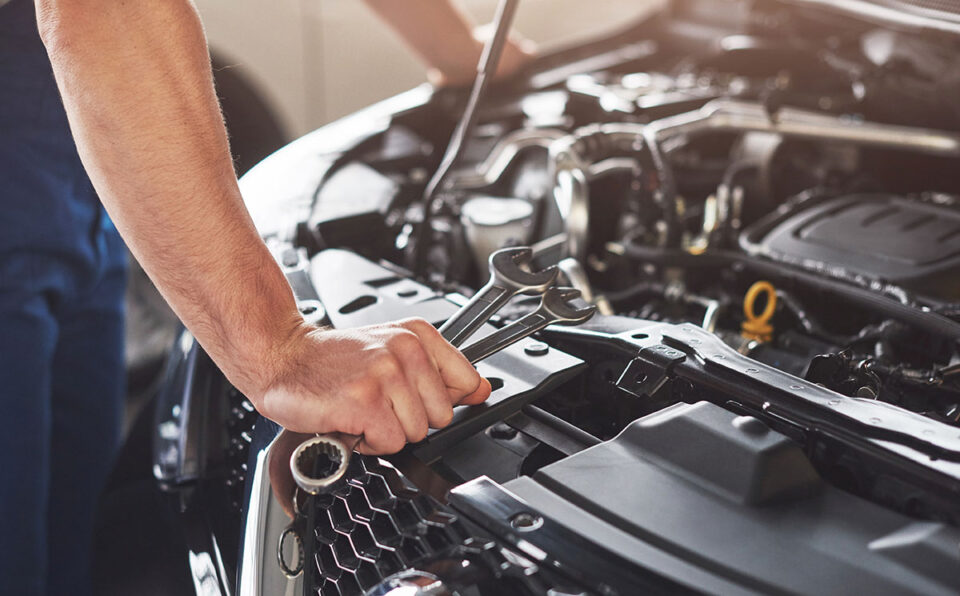Are you facing inconvenience with your Jaguar taking off? The Jaguar XF is a trustworthy travel companion when it comes to the open road. However, there may occasionally be snags that could briefly impair its smooth performance, much like any complex machine with intricate parts.
Discover the primary reasons why Jaguar automobiles break down and look into practical solutions to tackle these issues head-on. Knowing these typical problems will provide you the assurance to efficiently troubleshoot and handle any issues that may emerge.
To allay your concerns, we have listed the top five reasons why your Jaguar might not start and provide doable fixes to get you back on the road quickly.
Five Reasons Your Jaguar Won’t Start
When it comes to luxury vehicles like Jaguars, it’s important to understand that they are sophisticated machines with complex electrical and mechanical systems. While these intricacies contribute to exceptional performance and driving experience, they can also lead to occasional starting issues.
So, let’s dive into the five most common reasons why your Jaguar may be refusing to start and discover practical solutions for each scenario:
1. Poor battery:
A weak or dead 12v battery is the most likely reason why Jaguar’s engine struggles to start or starts slowly. An extensive inquiry and a battery voltage test are required to correctly diagnose the starting problem. This will make it clear whether the battery is the issue.
You can precisely analyze the health of the starter battery and identify any potential problems by measuring the voltage between the battery poles, checking the acid level, and evaluating the starter battery’s general condition. A fresh battery will often need some time to develop and reach its full potential.
2. Fuel Filter
A clean fuel filter is essential for maintaining an injection system that runs smoothly. It gathers dirt and debris over time, which can obstruct the flow of gas to your engine. The fuel filter is kept in top shape by routine upkeep and cleaning, ensuring a steady supply of fuel for optimum engine performance.
Every 20,000 to 30,000 miles, these filters must be periodically changed. You can make sure your car operates at its best and lasts as long as possible by doing this. This important maintenance activity is closely related to the general health of your car, so don’t forget to complete it.
Unlike most mechanical parts, the gasoline filter in your Jaguar is built to withstand wear and tear. However, after time, dirt and other airborne debris may start to clog it. Filter blockages may eventually result from this slow accumulation. Fuel pressure drops as the filter becomes blocked.
While it might not seem to make much of a difference at first, if the gasoline filter gets very unclean, it can seriously impair the engine’s efficiency and even prevent it from starting. You will have to replace the filter; unfortunately, cleaning it is not an option.
3. Burned-out fuse
Your Jaguar may occasionally malfunction due to a blown fuse. It’s critical to check each of the fuses in the fuse box that is necessary for the engine to start. To handle the fuse box by yourself, nevertheless, you must be extremely cautious!
Due to the presence of power, it is strongly advised to do any repairs or tests on the box in a Jaguar battery repair shop. This reduces any potential hazards or mishaps that might happen elsewhere and ensures the equipment is used safely.
4. Misaligned spark plugs
Spark plugs must be in good condition for the engine to start. Thankfully, most problems with the engine starting can be ascribed to anything other than faulty spark plugs. Instead, weak plug connections in the ignition system are frequently the cause of problems.
Fortunately, you may quickly fix it yourself on the spot if only one plug is loose. However, if a spark plug entirely fails, it must be changed in a workshop by a qualified technician.
5. Fuel pump malfunction
If your Jaguar’s fuel pump fails, you can discover that the engine won’t start. The pump’s job is to efficiently move the necessary quantity of fuel from the tank to the engine’s injection system, making sure it gets there with the right pressure.
Before your fuel pump fails, you can start to notice symptoms. It’s crucial to have your fuel pump checked to avoid further issues if your car’s engine exhibits jerky motions, sporadic breakdowns, is challenging to start, or displays any of these symptoms. Instead of waiting until it is too late, be proactive and have your pump evaluated right away.
This problem’s primary cause could be the pump’s wear and contamination. This problem’s primary cause could be the pump’s wear and contamination. It is crucial to remember that a failed fuel pump is typically indicated by a leak, a broken power contact, damage to the pump lever, or any other damage to the fuel line.
To guarantee that your system is operating properly in such circumstances, it is advised that you have your workshop replace the damaged gasoline pump as soon as possible.
Wrapping Up
When it comes to Jaguar maintenance, it’s crucial to have professionals who are not only skilled and knowledgeable but also equipped with the necessary tools and expertise to handle any problem swiftly and efficiently.
Whether it’s a malfunctioning appliance, a leaky pipe, or a faulty electrical system, these professionals have the know-how to diagnose the issue accurately and provide effective solutions. By entrusting your repair needs to them, you can rest assured that your problem will be resolved in no time, saving you both time and energy.

